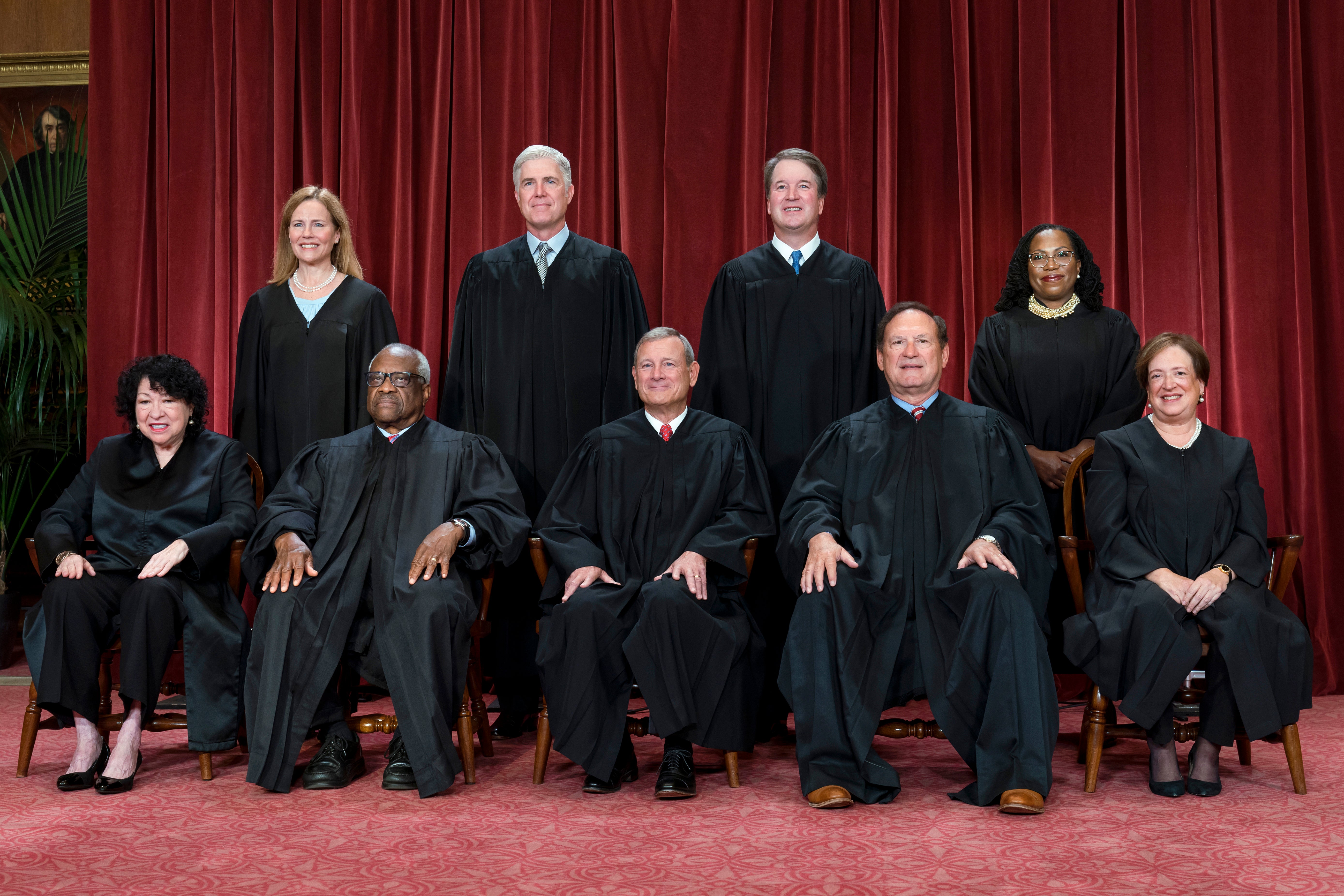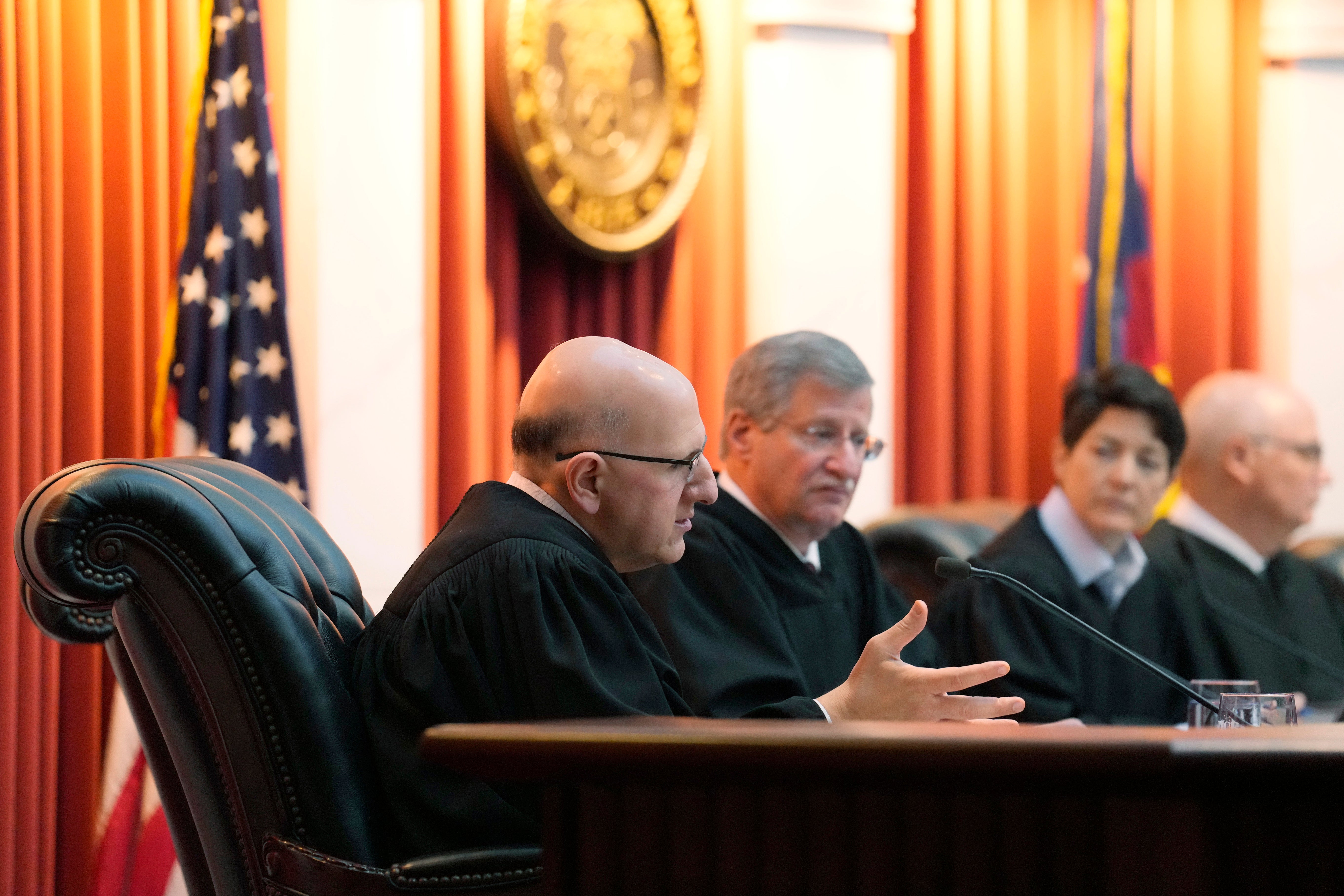Trump demands Supreme Court overturn Colorado decision disqualifying him from 2024 ballots
The former president was found ineligible for office under the 14th Amendment’s ‘insurrection’ clause
Your support helps us to tell the story
From reproductive rights to climate change to Big Tech, The Independent is on the ground when the story is developing. Whether it's investigating the financials of Elon Musk's pro-Trump PAC or producing our latest documentary, 'The A Word', which shines a light on the American women fighting for reproductive rights, we know how important it is to parse out the facts from the messaging.
At such a critical moment in US history, we need reporters on the ground. Your donation allows us to keep sending journalists to speak to both sides of the story.
The Independent is trusted by Americans across the entire political spectrum. And unlike many other quality news outlets, we choose not to lock Americans out of our reporting and analysis with paywalls. We believe quality journalism should be available to everyone, paid for by those who can afford it.
Your support makes all the difference.Donald Trump’s attorneys have formally asked the US Supreme Court to overturn a ruling that finds him constitutionally ineligible for the presidency for his actions surrounding the attack on the US Capitol on January 6.
Last month’s historic ruling from the Colorado Supreme Court disqualified the former president from appearing on the state’s 2024 presidential ballots, an argument at the centre of more than a dozen similar cases across the US challenging his eligibility under the provisions of the 14th Amendment.
The question could now be in the hands of the nation’s highest court, teeing up a politically explosive case that could reshape the 2024 election and have far-reaching impacts beyond the former president’s campaign.
Colorado justices determined that Mr Trump is disqualified under Section 3 of the 14th Amendment, which prohibits anyone who has sworn an oath to uphold the Constitution and “engaged in insurrection or rebellion” from holding public office.
“This Court should grant certiorari to consider this question of paramount importance, summarily reverse the Colorado Supreme Court’s ruling, and return the right to vote for their candidate of choice to the voters,” Mr Trump’s attorneys wrote to the US Supreme Court on Wednesday.
“The question of eligibility to serve as President of the United States is properly reserved for Congress, not the state courts, to consider and decide,” they argued. “By considering the question of President Trump’s eligibility and barring him from the ballot, the Colorado Supreme Court arrogated Congress’ authority.”
Attorneys for Mr Trump also argued that the presidency sits “outside the scope” of Section 3, and that the attack on the US Capitol on January 6 was not an “insurrection” and that Mr Trump “in no way ‘engaged’” with it.
Colorado’s ruling was paused until at least 4 January, one day before a state deadline to certify ballot contents. That date could extend indefinitely under appeal. Mr Trump will remain on the ballot, for now, pending that appeal.
Colorado Secretary of State Jena Griswold, whose office handles elections, said the state’s Supreme Court “got it right” and urged the nation’s high court to “act quickly given the upcoming presidential primary election”.
The US Supreme Court has never issued an opinion on Section 3 of the 14th Amendment. Several filings to the court from constitutional scholars, former elected officials, former federal prosecutors and others have urged the justices to swiftly consider the case.
It is among at least two major constitutional questions surrounding Mr Trump’s intersecting campaign and legal battles that have appeared before the high court.
After initially rejecting a request to hear the case before appeals court judges had a chance, the justices are likely to review whether Mr Trump has presidential “immunity” from charges connected to his attempts to overturn the 2020 presidential election.
That “immunity” question will be heard by a three-judge federal appeals court panel next week.

Last week, attorneys for Colorado Republicans also pressed the Supreme Court to reverse the Colorado decision, arguing that the state justices’ interpretation of Section 3 will open the door for anyone to challenge candidates’ eligibility, and that there is “a real risk” that the “flawed and unprecedented analysis will be borrowed, and the resulting grave legal error repeated.”
The nonpartisan watchdog group that launched the Colorado challenge asked the Supreme Court to resolve the case on “expedited timetable” ahead of the state’s 5 March elections, “so that voters in Colorado and elsewhere will know whether Trump is indeed constitutionally ineligible when they cast their primary ballots.”
Last week, Maine’s top elections official came to a similar conclusion as the Colorado justices after hearing three separate challenges to his eligibility. Mr Trump has also appealed to that state’s superior court.
The events surrounding the Capitol attack, fuelled by Mr Trump’s false narrative that the 2020 presidential election was stolen from him, “were an attack not only upon the Capitol and government officials, but also an attack on the rule of law,” Maine Secretary of State Shenna Bellows wrote.
“The evidence here demonstrates that they occurred at the behest of, and with the knowledge and support of, the outgoing president,” according to her order. “The US Constitution does not tolerate an assault on the foundation of our government.”
Mr Trump’s name will also stay on that state’s primary ballot until a state court reviews the issue.

A lawsuit filed by Citizens for Responsibility and Ethics in Washington on behalf of a group of Colorado voters in September argued that Mr Trump had “failed” Section 3’s test, rendering him “constitutionally ineligible to appear on any Colorado ballot as a candidate for federal or state office”.
In November, in a decision following a trial and arguments stemming from the lawsuit, Colorado District Judge Sarah Wallace found that not only did Mr Trump incite the attack on the Capitol in an effort to block the peaceful transfer of power after the 2020 election, he also “engaged” with it.
Mr Trump “acted with the specific intent to incite political violence and direct it at the Capitol with the purpose of disrupting the electoral certification,” she wrote.
After an appeal to the state’s highest court, Colorado justices wrote in a 4-3 majority opinion on 19 December that “President Trump did not merely incite the insurrection.”
“Even when the siege on the Capitol was fully underway, he continued to support it,” they continued. “These actions constituted overt, voluntary, and direct participation in the insurrection.”
Join our commenting forum
Join thought-provoking conversations, follow other Independent readers and see their replies
Comments